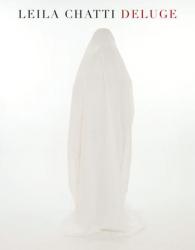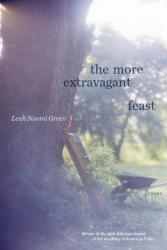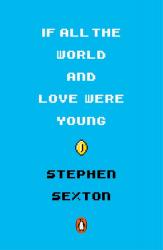


Walt Whitman read of his brother George’s injury at the Battle of Fredericksburg in the New York Herald on December 16, 1862. Fredericksburg was but one battle among many, though it lasted five days, and nearly ten thousand Union army soldiers were injured there. Each day, another long list. Whitman left New York hurriedly to find his brother, knowing that many of his readers scanned the same paper each day for the same worrisome reason. Many scanned every paper, everywhere in the country. To be alive in that moment—not just to be a person named Walt Whitman, but to be a person at all—was to know the public, social, and emotional burden of war.
It’s impossible to imagine the term “identity poetics” without Whitman, who devoted himself to experience-as-self-as-subject with a convert’s zeal. Whitman remained in Washington for the duration of the Civil War, holding a government sinecure while volunteering in hospitals and writing. When in “Song of Myself” he describes “The malform’d limbs…tied to the surgeon’s table, / What is removed drops horribly in a pail,” he draws detail from first-hand experience; these lines aren’t acts of imagination but of documentation. His contemporary readers also knew all too well the horror of field medicine, not because they themselves had necessarily suffered an amputation, but because of the procedure’s ubiquity in their historical moment. So, too, with scenes in “Song of Myself” featuring enslaved people working in cane fields, held captive by overseers, and bought and sold at public auction. He witnessed such scenes during his 1848 sojourn in New Orleans, and knew his readers would have experienced slave auctions as current events advertised in the newspaper, not as historic abstractions. Rendered with the privilege of direct experience—not from the overarching, cinematic perspective of the historian in a study, but from the claustrophobic, narrow point of view of the soldier in a trench—the poems generate meaning because readers recognize their subject matter from their own lives.
Poets since Whitman leverage the particulars of individual experience in service of the lyric first person: that knowing, seeing poetic “I” that speaks to us as if the poem were an intimate letter. What matters most in this way of writing is the poet’s understanding of the curiosities, anxieties, preoccupations, and cultural background of the reader. Arguably, all writing depends on a shared vocabulary between author and reader; consider, though, the difference between Whitman’s thicket of nouns and Dickinson’s comparative desert. (To visualize a Whitman poem, one must have lived amply and attentively; for Dickinson, one need only understand glass, a bee, light, death, and the idea of God.) These poems rely so heavily on contemporary experience that we need to remind ourselves of the temporal gulf between them and us. It’s one thing to feel, as we do, shock and horror at the idea of a slave auction. It’s quite another to have witnessed one, or seen them regularly advertised—as Whitman knew a great many of his readers would have.
Three recent books exemplify the current thinking around this issue of readership: Leila Chatti’s Deluge, Stephen Sexton’s If All the World and Love Were Young, and Leah Naomi Green’s The More Extravagant Feast, winner of last year’s Walt Whitman Award of the Academy of American Poets. These collections refer explicitly to the tensions between the lives of their authors and the concerns of contemporary readers. It’s impossible to discern the extent to which any poet writes intentionally for her own time or for posterity; not all poets expect to be read in perpetuity, as Whitman clearly did. We can know, however, that the power resident in these collections derives from specific gestures of reference between the life the poet knows and the world the reader inhabits. These aren’t the disembodied voice from everywhere and nowhere—Bishop, Strand, Berryman—whose appeal is real but different. Inevitably, poems like these are aware of us.
Chatti’s Deluge confronts the reader personally, politically, and spiritually. The poems use menstruation, trauma, illness, and the humiliations of industrial medicine to frame an idiosyncratic approach to the idea of God. As an object, the book shows its intent early—the collection opens with a table of contents whose sections are divided by droplets of blood. As an illustration, the droplet functions as the opposite of a symbol, standing for whatever it doesn’t require us to visualize; it’s like an inside-out grawlix, demanding that we look intently at that for which allusion might otherwise suffice.
These poems know that the taboo against candid, frank discussion of women’s anatomy and health is alive and well in mainstream American culture, and that feminists have written against those silences and erasures by foregrounding the explicit details of women’s experience. Disgust is culturally specific; revulsion at the workings of the female body is learned, not genetic. (It’s the difference between film representations of men’s wounds—Saving Private Ryan, Deadpool—and women’s menstrual blood [Carrie, Superbad].) Chatti relies on shock not for comedy but in the manner of Sharon Olds, Sylvia Plath, Anne Sexton, and other confessional poets.
Moreover, Deluge seems aware of its place in a growing canon of trauma-oriented contemporary writing by women, including Leslie Jamison’s “Grand Unified Theory of Female Pain,” published in these pages in 2014, Eula Biss’s “The Pain Scale,” Elaine Scarry’s The Body in Pain, and Susan Sontag’s seminal Illness as Metaphor, which Chatti cites. Any such list is provisional, conditional, and partial, but we recognize the titles that acknowledge the details of women’s bodies and health precisely because they are so relatively few. Language describes outlier conditions (we have the word homeless but no corollary word for those who have homes, or political novel as a way of acknowledging how few novels deal with politics) condescendingly categorized as “women’s writing.” Chatti’s poems exhort us to question our own reaction to the details of her bleeding by naming them.
The second poem, “Mubtadiyah,” narrates the speaker’s menarche, which occurs in the restroom of a mosque during the muezzin’s call to prayer. “I touched privately / the indelible stain,” she says, “the blood my summons, blot like a seal, a scarlet membership / card slid from my innermost pocket.” The onset of adult reproductive physiology awakens in her an adult awareness of self, morally and spiritually: “I had not been good / all my life but until this first vermillion drip / I lived unobserved … and now, … God’s reproachful / eye turned my way …. In the dark, the ruddy / iris stared back at me.” This gesture places a series of demands on the reader: Look carefully at the first blood spotting a young woman’s underwear; then, accept that in that moment she feels the moral weight of judgment; finally, believe that she understands the blood spot itself to be the all-seeing eye of God. It’s a big ask. It’s also a confident, clear-throated opening gambit for a collection.
The narrative arc of Deluge addresses the speaker’s cancer. Its poems describe a first sexual experience in which she discovers she has no hymen, a pregnancy scare, a diagnosis of sarcoma, illness, extensive hemorrhaging, surgery, sex during menstruation, trying and not trying to conceive a child, and, eventually, recovery. It’s punctuated by four different poems titled “Annunciation”; much of the speaker’s physical suffering is both concrete—the physical experience of a malfunctioning reproductive system—and metaphorical, insofar as it forces her to contend with womanhood in the contexts of Christian and Muslim faith. These gestures call attention to themselves. Likewise, her adoration of vocabulary (“windows glaucous…plane niveous…cities rutilant,” from “Menorrhagia”) will prompt some readers to the dictionary and others to skip to the next page. If an authorial choice provides more meaning than the distraction it poses, it’s a device. If it doesn’t, it’s a gimmick. Readers who decide to stick with this collection through its first third will find its middle and end more even and sure-footed.
The best of these poems reveal Chatti’s moments of greatest synthesis: the alchemy of vivid imagery, aural leaps, and concrete sensory detail. In “Myomectomy,” for example, “They entered, innominate / doctors, their hands blue / as sky slipping through that oculus / to retrieve what had taken root— // it resembled a pomegranate / when lifted into view, ruddy / globe cradled by two hands, fruit / of the dead.” If it’s true that unearned suffering is redemptive, though, this speaker eventually finds herself triumphant and redeemed. From “Exegesis”: “I’ve known men but never a god / that bled and lived. But I did.”
These most ambitious moments, asking the reader to perceive a tumor as a fruit or a jewel, attempt to speak from, but also beyond, one person’s experience. The poems inconsistently distinguish their most eloquent moments from their most prosaic. In a representative passage from “Postdiluvian,” “Houses, copses, lives of strangers flotsam doused in shadow. A sanguine glow soaking back into the earth. And what was left of it drained slowly from the room” knows itself to be poetry. Elsewhere, in “Mother,” the tone is more wooden: “What I wanted, always, to be: / in control. And I knew this was / impossible, just as I knew, even then, that / to be a mother was to be the only / permissible form of a woman, the begrudging / exception to the rule of our worth- / lessness.” The oscillation can be hard to follow; lyrically urgent utterance pairs poorly against mere argument. Deluge is uneven but ultimately cohesive. It’s a book that wears its influences on its sleeve, but manages to evoke a gripping sense of individual experience.
Whereas Deluge relies on the rhetorical power of revelation, Stephen Sexton’s If All the World and Love Were Young refers to a narrower but broadly familiar cultural touchstone: Shigeru Miyamoto’s 1990 Nintendo game Super Mario World. The book’s nine sections parallel the game’s levels, and their arc describes the speaker’s experience of his mother’s cancer diagnosis, illness, and eventual death. However accurate this description of concordance might be—movement through the game, corollary passage through an intense and emotional discrete period of time—it’s inherently incomplete, because Sexton’s in-gathering of influences, references, and asides rivals Whitman’s in its breadth and depth. Reading past the nine levels and a coda gets the reader to “Credits,” a paratextual list of people, ideas, events, places, plants and animals, songs, and ephemera that Sexton borrows for the poems. The Credits loosely mirror those at the end of the video game itself, and invite readers to choose one of two approaches to interacting with the poems.
One way, perhaps the more direct, is to immerse in the pleasures of Sexton’s language and imagery, which suggest an exquisite emotional precision and command of the medium. It’s possible and maybe wise to read a book this carefully crafted purely for the satisfaction it offers at the granular level: “Pixels and bits pixels and bits their perpendicularity: / one of the worlds I live in is as shallow as a pane of glass” opens “Yoshi’s Island 2,” which continues, “Groundsels loiter along the low dashed wall the daisies loll about. / One summer’s day I’m summoned home to hear of cells which split and glitch / so haphazardly someone is called in to intervene with poisons / drawn from strange and peregrine trees….” To let the language flow into and through one’s head allows the pleasures of Ulysses, for example, or Light in August. Another kind of reading, though, keeps one thumb near the back of the book, at the Credits, in the way one might keep The Odyssey handy while reading Joyce, or the gospel according to John alongside Faulkner. There one can keep up a parallel conversation with Sexton, who specifies “television… Groundsel (Senecio vulgaris), Daisy (Bellis perennis),” and a wealth of other asides for the poem cited above. The gathering of reference comes across as either thorough or obsessive; like David Foster Wallace’s footnotes, it offers either the engagement of a second authorial presence or the frustration of a bifurcated read. It’s a torrent that lets the reader know how much water is behind the dam in these poems.
Trent Reznor, Roy Orbison, Wendy O. Williams, Lemmy Kilminster, and Ludwig van Beethoven make appearances in the Credits, predictably enough; Miyamoto included characters named for them in the game. Other, more hermetic references offer surprise: “Jasper, Carnelian, an ossuary, trills, piano, E Flat Major, Virgin and Child, Forests, Charles Baudelaire… Fishing, cruelty, underwater, the elements, synaesthesia… Oboes, a clearing in the woods, first born children, mistreatment of animals, a white horse….” In and of themselves, these references might seem like the ephemera of a disordered mind. Keyed against the poems, though, they’re a series of conversational assurances to the reader that the poems’ abstractions are securely anchored in concrete objective reality. Sensory detail and externalities index public events against the private subject matter of the speaker’s mother’s cancer; the Credits strengthen the poems as they confirm that the speaker and reader experience the same culture. “Assisted Passage Migration Scheme… Jacques Derrida… The Omagh Bomb (15th August 1998)… Edward Muybridge (1830-1904), Sallie Gardner at a Gallop… sacked villages… Chernobyl….”
The pacing and control in Sexton’s poems is superb, and their attention to the musicality of language virtuosic. It’s a rare and stunning thing to read contemporary poems that have both a twenty-first-century sensibility and an ear that echoes Hopkins, Yeats, Auden, and Heaney. From “Donut Plains 1,” for example: “The lie of the land is the shape of the north of Ireland likewise / missing a lump from its body where the lake fills with eels zigzagged / from the Sargasso like needles of glass light slowed through sodium.” (“Lough Neagh,” the Credits tell us. “Sargasso Sea.”) The figurative language is as precise as the diction is melodic; the language veers away from the problem of pretty-being-merely-pretty by attaching a clear objective correlative to the metaphors. Lough Neagh does resemble a site of excision; elvers do look like needles of glass, and, by extension, like glass “light slowed through sodium,” a feat proposed in 1924 by Albert Einstein and Satyendra Nath Bose and accomplished at the Rowland Institute for Science in 1999. How does one know this, you ask? One Googles it, scooping knowledge out of our brains’ external hard drive. Now no one needs to remember anything.
But memory dictates that we will, regardless. Throughout, Sexton lends the same aural and emotional precision to the book’s real subject matter: the speaker’s mother’s illness and death. The video game is a mechanism to get at meaning, not meaning itself, and the compulsive cataloging of referents is a way of showing us the furniture of his imagination. Neither occludes the main task of reckoning with loss. “It is winter in the Ulster Hospital and winter outdoors / and winter in our hemisphere the tilt of the planet says so. / Since she has lost her sense of taste we have dinner in McDonald’s,” he writes, in the opening lines of “Donut Secret 2.” It’s gallows humor: The Unhappy Meal. “The kitchen bleeps and chirps and blips the cryptolect of ICUs,” he continues, in a metaphor that should forever change fast food; “Her hair is thin under the light and surgery will be discussed / tonight while fleets of gritters salt all the main arterial routes. / The country roads we travel home by purple and glisten with frost / underneath the constellations and the Sagittarian moon.”
The same moon, and others, shines over the poems in Leah Naomi Green’s The More Extravagant Feast. Green’s family belongs to an intentional-living community in Rockbridge County, Virginia; their lives there provide much of the subject matter for the book. They’re largely off-grid, relying on farming, hunting, and fishing for sustenance, as removed as possible from the vagaries of contemporary life and as close as possible to elemental, urgent, and focused human needs and relationships. These poems explore love, connection to place and family, pregnancy, motherhood, and ecstasy. There’s a little bit of sex, like salt on good food. (Not enough to be overpowering, but plenty to pep up the repast.) Threaded throughout is the factual assertion that we are made of the earth and one another, and that to accept this understanding is to know one’s life as it is.
Green’s poems return obsessively to a specific range of images: moon, stars, deer, seed, egg, tide, ocean. The repetition is more than merely redundant; the images serve as a refrain, a cyclical return of word and sense that means something a little different in each iteration, in light of what happens in the space between one and the next. “How can I hold you, child / when your body is mine, your middle, my own? // Nine times the moon has spooled. I’ve spun / a child in my belly, enormous”: the speaker’s sense of wonder broadcasts itself on the frequency of images that resonate specifically because they’re available to all of us (“Week 38: Mitosis”). (We all see the same moon; hers is ours.) This is the imagery of an imagination immersed by choice in an environment that offers not the broad and shallow range of urban or suburban life, but the narrow and deep focus on a few crucial things over a long period of time. It’s the metaphor of stillness and silence, not business and busyness. The interactions they describe are immediate and visceral: “I am telling / my daughter a story in which I am a deer // she comes across on the beach, / and with whom she travels // from the ocean to the mountains / and home on a single, hot day, // just to smell the hay ferns, / just to let the creek cool her.” By the end of the sequence, one can’t tell whether the “she” is the speaker, the deer, or the daughter—which is, of course, the point.
Willed separation from the world, though, does not dictate ignorance of or indifference to it. This is a speaker who knows the political and economic realities of contemporary American life at the same time she chooses to be preoccupied by intimate relationships with people and land. In “The World Tips Back,” for example, she describes stargazing with her daughter: “We explained the eclipse but not / the election.” In living in the world but not of it, this poetic voice needs to come up with a new vocabulary to express the tension between the two: “I want a word for distraction from one’s child // by photos of one’s child on one’s phone.” The fundamental idea that language is inadequate to experience, or fails to name our feelings accurately enough to be reliable, animates many of these poems. (One hears Robert Hass in the aesthetic distance: blackberry, blackberry, blackberry.)
Leila Chatti knows that her readers’ interests and politics will likely disincline them to turn away from the poems in Deluge on the basis of the graphic and confrontational nature of her subject matter. The poems are written with a particular kind of contemporary audience in mind; it would put a critic in uncomfortable company in 2020 to state openly and publicly that she or he would rather not spend eighty-five pages reading about the details of menstruation, cancer, or a vexed relationship with God. (If that critic is me, he has not menstruated, suffered serious illness, or cared much about religion—all forms of privilege not to be taken for granted.) Our culture is presently reckoning with the not-especially-revolutionary idea that each person’s life and experience is important—that no one’s issues inherently matter more than anyone else’s, and that the voices of oppressed groups have been ignored, marginalized, and silenced for far too long. Chatti knows this. Her collection generates meaning partly inherently in itself, and partly in the reading experience it anticipates in our particular moment.
Stephen Sexton’s external frame of reference is as weighty as Chatti’s. One must take seriously the immersive pastime of a child, illuminating, as it does, the creative and intellectual habits of mind in the adult that child becomes. It’s also more playful. There’s an obvious embedded irony in building a cartoon scaffolding for an edifice of hardship, loss, grief, and reflection. The interplay between interior and exterior awarenesses furnishes a layer of tension and contradiction that propel the reader through If All the World and Love Were Young.
Leah Naomi Green knows about her reader the opposite of what Whitman knows. Whereas Whitman anticipated, shared, and drew on the normative experiences his readers would bring to the page, Green’s path veers sharply from contemporary America’s preoccupations. The poems maintain traction because the life they describe is unlike that of most readers, who do not hunt deer, sustain themselves by organic farming, or live in isolated sub-rural Appalachian enclaves. She does not make the mistake of perceiving that in understanding her life she has come to understand life itself, nor does she speak beyond what she knows. For readers, the novelty of taking it in vicariously—“the buck…thawing a halo on the frosted ground, / shot in our field predawn”—lends resonance to her insights.
The issue is not that these collections, or their concerns, are ephemeral. Good poets don’t write on trend, and these are good poets. Their internalized considerations of the exterior aspects of readership are simply a way of thinking about how poems make meaning. One does occasionally see books that appear to have been composed out of a marketing-driven, publicity-oriented idea of authorship—the project book. These three have higher ambitions: to tell, as Green says, “how necessary every / thing is.”







